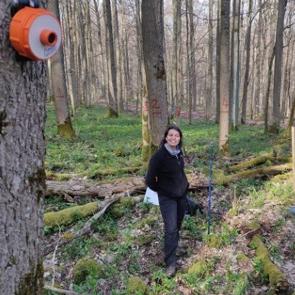Staff profile

Biography
Millicent is a PhD student in the Department of Biosciences at Durham University looking at how the European Arctic forest-tundra ecotone is currently changing under climate warming through mapping the current extent of the treeline and then modelling to understand how the ecotone will change under future climate warming. She is supervised across Biosciences and Geography taking an interdisciplinary approach to further understanding of vegetation change under climate warming. She is interested in the interplay between ecology, remote sensing, modelling, and field validation. She holds the Faculty of Science Pro:NorthEast studentship in Biosciences aimed at retaining doctoral students of colour in the North East. Most recently she was awarded an INTERACT Transnational Access, Andrew Croft Memorial Fund, and Alpine Garden Society grant for her fieldwork 'Sensing and Assessing the Forest-tundra Ecotone at relevant scales' (SAFE) in the first year of her PhD.
Outside of her degree she is a Member-at-Large as part of UK Polar Network’s and was previously one of the EDI Officers (2022-24) and is a member of the UK's Diversity in Polar Science Initiative (DiPSI) steering committee as well.
Millicent has an Masters by Research and BSc in Physical Geography from the Department of Geography at Durham University. She studied shrubs, machine learning, and remote sensing to differentiate between species contributing to shrubification of the Alaskan Sub-Arctic tundra. She spent a month on fieldwork in Alaska during summer 2022 which was funded by the Mount Everest Foundation, the Andrew Croft Memorial Fund, and the Weald of Kent Rotary Club. Her undergraduate dissertation focussed on looking at how farmer’s land management regimes were affected by differing subsidies to understand how land management techniques changed. Post-degree she spent 10 weeks interning at the Arnold Arboretum, she is the first and only person from Europe to have done so, in summer 2021 where she was introduced to polar ecology and shrubification.

